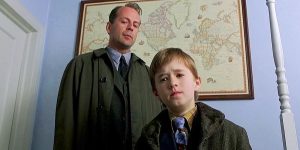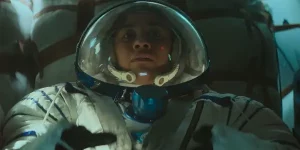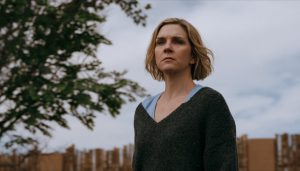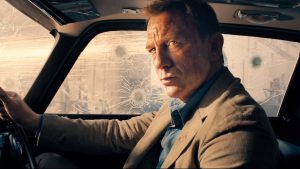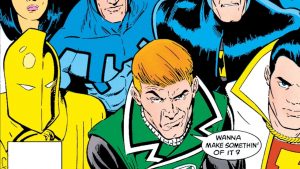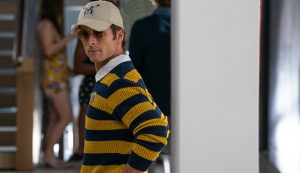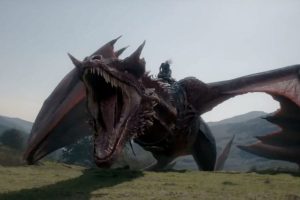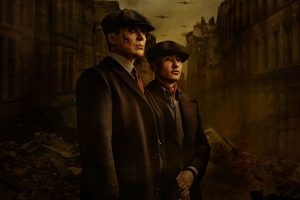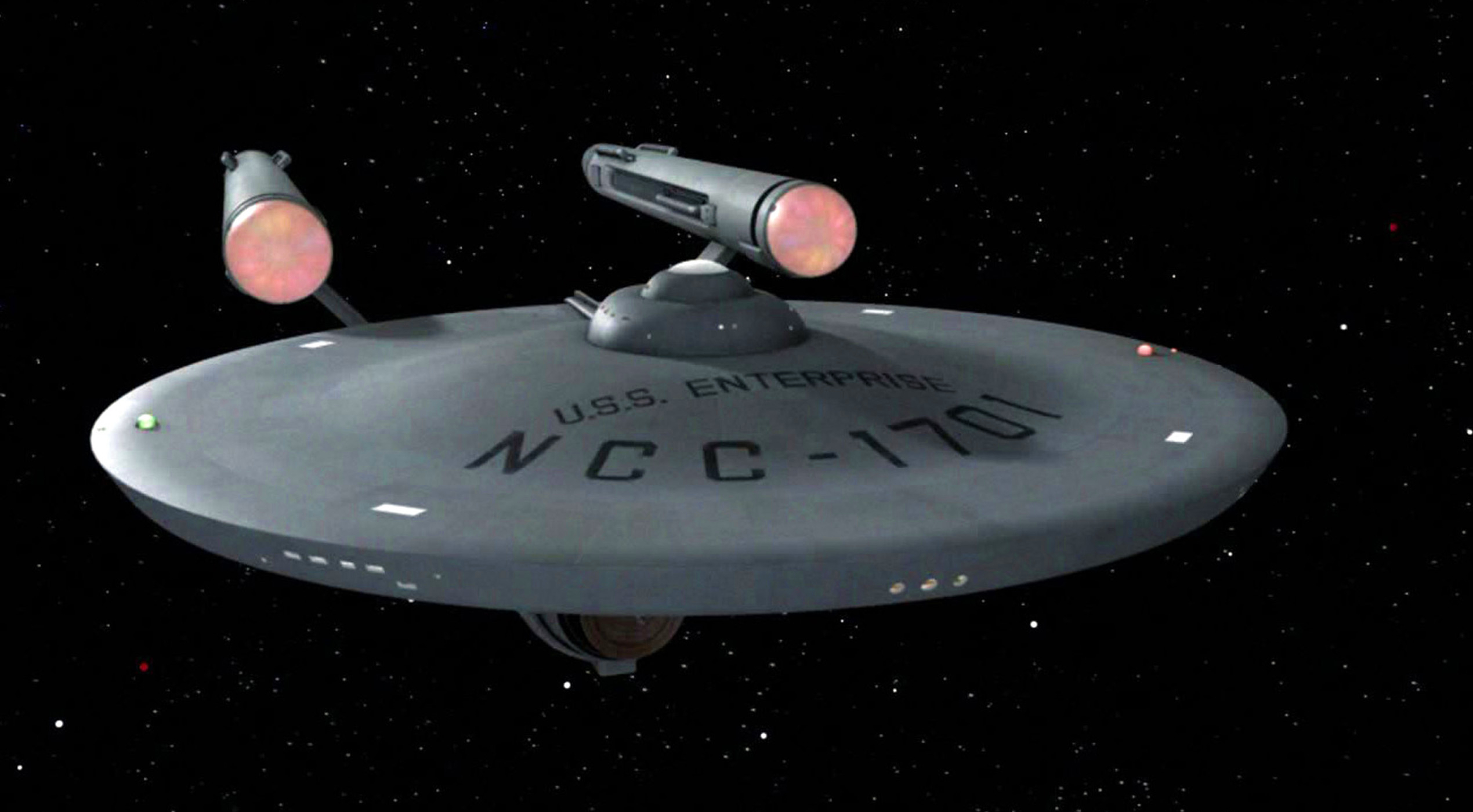
Star Trek is one of best and most well-known science fiction franchises of all time, so it’s no surprise that it’s had a huge influence on the rest of the genre. From other space-faring adventures to distant worlds to straight up parodies of the Enterprise and its crew, there are plenty of shows and movies that owe a bit to Gene Roddenberry‘s creation.
This is not a list of every single show or film that has been inspired by Star Trek because that list would cover a pretty good proportion of sci-fi on screen since 1966. But if you want to watch something Star Trek-adjacent, we’ve picked out 10 of our favorite shows and movies that were, to a greater or lesser degree, inspired by Star Trek.
Red Dwarf
Back in 1998, BBC 2 ran a Red Dwarf Night featuring interviews with celebrity fans, one of whom was Patrick Stewart. Stewart talked about how he was channel hopping (remember that, fellow oldies?) one night around 1993 or 1994 and came across something that, to his own “horror and outrage”, appeared to be a “rip-off” of Star Trek: The Next Generation. He was reaching for the phone to call his lawyer, “when something happened that made me laugh – and it was something that certainly would not have happened on The Next Generation.” Stewart realized the show was a comedy, not a cheap rip-off, started laughing, and became a fan.
Red Dwarf actually started around the same time as Next Gen, both being developed from 1986, though Red Dwarf was delayed in getting to air until 1988 due to an electricians’ strike. Following the misadventures of the last human being alive as he embarks on a 3 million year journey to get back to Earth, the series combines elements of a few different space-set shows and films, including Silent Running and The Hitchhiker’s Guide to the Galaxy, but there is clearly a hefty dose of Star Trek: The Original Series in there. As time went on, more and more Next Generation crept in as well, especially with the addition of android crewmember Kryten as a full time cast member in Series 3.
Stargate SG-1
Stargate SG-1 was spun off from the 1994 Dean Devlin and Roland Emmerich film Stargate, and the basic premise comes directly from that film: a US Air Force team go through a mysterious gate found in Egypt to another planet – or, in the case of the TV show, lots of other planets. When the show was adapted for television, although it did not feature many spaceships until later seasons, it did start to draw on the well-established tropes of Planet of the Week style space opera that Star Trek helped to popularize. The tortured military hero gained a wise-cracking style to suit star Richard Dean Anderson that aligned him more with “always a joke at the end of the episode” Kirk, the typical 1990s-nerdy Egyptologist slowly became more of a respected expert who sneezed less often, and more importantly the team gained a woman who was not sold to the Egyptology nerd in marriage (yes that is really the plot of the movie and yes, she calls him out on it) and a stoic alien.
The addition of Teal’c is where we can really see the influence of Star Trek creeping in because Teal’c is basically the love child of Spock and Worf, in the best way. He is extremely calm and composed – he has very deep emotions, but he keeps them under the surface and meditates frequently. He is also quite fond of a raised eyebrow. The “scientist” position on the team was already taken by Carter, so Teal’c fulfills the “warrior” role. Standing out as a warrior in a military setting is quite the task, but like Worf, Teal’c’s “honorable warrior” approach and fondess for his own culture’s weapons marks him out as a warrior among warriors.
Futurama
Futurama follows Philip J Fry, who accidentally falls into a cryogenic freezer on New Year’s Day in 2000 and wakes up on December 31, 2999 (and leaves his dog behind, in quite possibly the most traumatic episode of television ever made). Fry finds work with his distant nephew (an elderly man) at a delivery company called Planet Express. Being a science fiction comedy set in a future full of spaceships, there are of course references to Star Trek scattered throughout, and the short-skirted, egotistical, womanizing recurring character Captain Zapp Brannigan clearly has more than a bit of Kirk in him.
Futurama also incorporated Star Trek into its stories more directly on occasion. The show’s very first guest star was Leonard Nimoy as his own cryogenically preserved head, welcoming Fry to the Head Museum (a regular feature on the series). And later there was a whole episode dedicated to Star Trek itself, “Where No Fan Has Gone Before.” In this episode, Fry discovers that Star Trek inspired a whole religion, which led to the Star Trek Wars, which led to the show and everything associated with it being banned. But a powerful alien being has watched the whole show, and has given the preserved heads of most of the original actors new bodies so they can participate in an eternal Star Trek convention. It’s a loving, joyous send-up of the show and features all but one of the then-surviving original cast members plus, inevitably, Jonathan Frakes, because every spin-off of Star Trek in any form must feature Jonathan Frakes in some role. This is the Rule.
Battlestar Galactica (reboot)
Battlestar Galactica 2003/4 – 2009 is a reimagining of the original 1979 series Battlestar Galactica, so needless to say its main point of reference is that show (though the original has some connections with Star Trek as well, as we covered here). But it was also developed, executive produced, and had many episodes written by Ronald D. Moore, who first earned his stripes as a writer on The Next Generation, Deep Space Nine, and briefly on Voyager before his working relationship with his writing partner Brannon Braga broke down and he left.
While in many ways Battlestar Galactica was deliberately the anti-Star Trek – featuring a somewhat grimmer world view and an even higher body count – it also had many similarities, inevitably, since they are both set on space ships and led by a ship’s Captain or Commander. But Moore also emphasized some of the most interesting themes of 1990s Star Trek in his noughties version of BSG. Having left Voyager after only a couple of episodes, he obviously felt he had more to say about a spaceship on a long journey to get to Earth. And he had done a lot of work on Deep Space Nine, at the time the grittiest Star Trek series (possibly overtaken by Discovery or Picard since then– argue that out in the comments!). DS9’s penchant for morally gray characters and storylines and for stories based around a mysterious alien religion is clearly reflected in the themes emphasized by Moore’s reimagining of Battlestar Galactica.
Firefly/Serenity
Firefly (and its follow-up movie Serenity) is another show that, on the surface, seems to be deliberately doing something different to Star Trek. Set in the future and following the crew of a spaceship, it has a Western-inspired vibe. The ship has a courtesan and a mercenary on board, and the use of Chinese phrases scattered among the English seems to be a reaction against the perceived tendency of Star Trek and other series to make the future look very American (somewhat unfairly, and Uhura’s native language is very specifically established as Swahili in “The Changeling,” although she is admonished and told to speak English which is especially odd as they all have Universal Translators… but we digress).
But actually, Firefly is very directly inspired by Star Trek, which was famously conceived by Gene Roddenberry as a “wagon train to the stars.” Its even more famous tag line describes space as “the final frontier,” clearly positioning the show as basically a Western in space. Firefly takes that basic idea but goes in a different direction with it. Instead of focusing on the exploration aspect of the movement of immigrants to America ever further west in the 19th century, Firefly picks up on other elements of Westerns and Western tropes – particularly the lawlessness in a frontier environment with minimal law enforcement. It is the yin to Star Trek’s yang.
WALL-E
WALL-E’s most obvious and immediate inspirations are the films Silent Running and 2001: A Space Odyssey, but if you look closely, there is a good bit of Star Trek in there as well. It is, of course, largely set on a spaceship and one of the main characters is the ship’s captain – so far, so superficial.
But there are deeper connections to Star Trek here. One of the things that is notable about WALL-E is just how good and well-intentioned all the future human characters are. The present-day human character played by Fred Willard, and by implication all the other present-day humans, are somewhat terrible, but all of the future humans we meet are good people who are open to new experiences when they are exposed to them. Their sedentary, passive lifestyles are simply what they have been taught and brought up with. The simplest and briefest exposure to the world around them, even just by being accidentally toppled out of their mobile chairs, sets them off on a journey of discovery, and the ship’s captain is thrilled and excited to learn more about Earth and about his own ship’s true mission. That attitude is pure Star Trek – a passion for discovery and exploration, even when it is one that ultimately leads back to Earth again.
The Orville
There was a point, around 2017-2019, when The Orville was famous for being more like Star Trek than Star Trek. This is not meant – by us anyway – as a criticism of Star Trek: Discovery, which is a great show. But in its first two seasons, Discovery deliberately leaned away from some of the Star Trek series that had come before, following a disgraced former mutineer instead of a Captain or Commander, featuring a morally dubious Captain who actually turned out to be “evil,” focusing on war and trauma, and using arc-based instead of episodic storytelling. It was pretty similar to Deep Space Nine in many ways, but for fans of the more upbeat, Planet of the Week, episodic storytelling of the Original Series, The Next Generation, or Voyager, it was a bit of a shock (Star Trek: Enterprise, like Discovery, re-tooled itself somewhat halfway through).
The Orville, on the other hand, basically is Star Trek in the 1990s mold of Next Gen or Voyager. Seven episodes of the show were actually written by Brannon Braga with his new writing partner, former scientific consultant on Star Trek, André Bormanis. And yes, writers are of course capable of writing different things, but although The Orville started out as a Star Trek spoof, pretty much the only difference between the two by season 3 is that people on the Orville sometimes eat pot brownies.
The show also stars Deep Space Nine’s Penny Johnson Jerald in a regular role as the ship’s doctor, and has guest-starred Next Gen’s Marina Sirtis, Voyager’s Robert Picardo and Tim Russ, and Enterprise’s John Billingsley, and the show’s directors include Star Trek’s Brannon Braga, Robert Duncan McNeill and, of course, Jonathan Frakes. So it must be Star Trek.
Avenue 5
Avenue 5 is a sadly short-lived science fiction comedy that blends elements of Voyager, Red Dwarf, and WALL-E. It takes from Red Dwarf and Voyager the basic plot that a spaceship has ended up a long way from home, and an essential crew member has been killed and must somehow be replaced. It then adds a well-meaning Captain who was only ever intended to be a figurehead, and not to actually run the ship, from WALL-E. Hilarity – and some surprisingly shocking deaths – ensue.
Although the somewhat less than inspirational characters skew closer to Red Dwarf, Battlestar Galactica, or Firefly, Avenue 5 shows its Star Trek side pretty clearly in the hiring of Voyager’s Ethan Phillips (Neelix) as former astronaut Spike Martin. It also features an entire plot line built around the ability to split the ship into two, a clear reference to one of the Enterprise-D’s most famous (and least used) features.
Avengers: Endgame
This one is probably the biggest surprise on this list. Granted, it does feature spaceships and space travel, but as a big budget superhero film, it does not obviously have much in common with space opera.
What connects the second-highest grossing film of all time with Star Trek is the importance of the ensemble and the relationship between a group and its leader. Kevin Feige has mentioned a couple of times (both times speaking to Entertainment Weekly) that he loves The Next Generation and that he had its final episode “All Good Things” in mind when developing Avengers: Endgame. “All Good Things” (written by Brannon Braga and Ronald D. Moore) has some time-hopping going on that is not dissimilar to Endgame, but Feige talked specifically about the very last scene, when Picard finally sits down to play poker with his senior officers. That relationship between the Captain and his crew and them all coming together, just like the shawarma-based post-credits in the first Avengers film, is what Feige really wanted to take from Star Trek and incorporate into the MCU.
The film also takes its title from the final episode of Voyager and directly lifts its closing images featuring the autographs of the actors playing the six main characters from Star Trek VI: The Undiscovered Country, the final film focusing on the original Star Trek crew played by their original actors, symbolizing its similar position as a grand ending to the earliest phase of a franchise.
Galaxy Quest
We’re finishing with a film and a show that are not just “inspired by” Star Trek – to all intents and purposes, they are Star Trek, or very nearly. The premise for 1999’s Galaxy Quest is that aliens have been watching a Star Trek-like show and mistaken it for “historical documents,” so when they find themselves facing an enemy they can’t defeat, they crash a convention to ask the “crew” of the NSEA Protector for help. With a cast led by Tim Allen (a perfect Shatner-a-like), Sigourney Weaver (of course), and Alan Rickman (whose sad passing is the reason a proposed TV show never got off the ground), the resulting story is hilarious, heart-warming, and heart-breaking in equal amounts.
Galaxy Quest is perfect. It just is. If you are a Star Trek fan and you haven’t seen it, why not? Go and watch it immediately! You will never be able to watch an episode of Star Trek without quoting a line from Galaxy Quest ever again (especially not the Original Series episode “Arena”). Hear yourself constantly saying, “I’m the guy that dies to show the situation is serious!” “Quick, let’s get out of here before one of those things kills Guy!” “Does the rolling help?” “I see you managed to get your shirt off,” “Whoever wrote this episode should die!” and of course, “That’s not right!” And I know I just spoiled several of the funniest lines, but go and watch it anyway, I promise it’s worth it.
The post The Best Sci-Fi TV Shows and Movies Inspired by Star Trek appeared first on Den of Geek.
